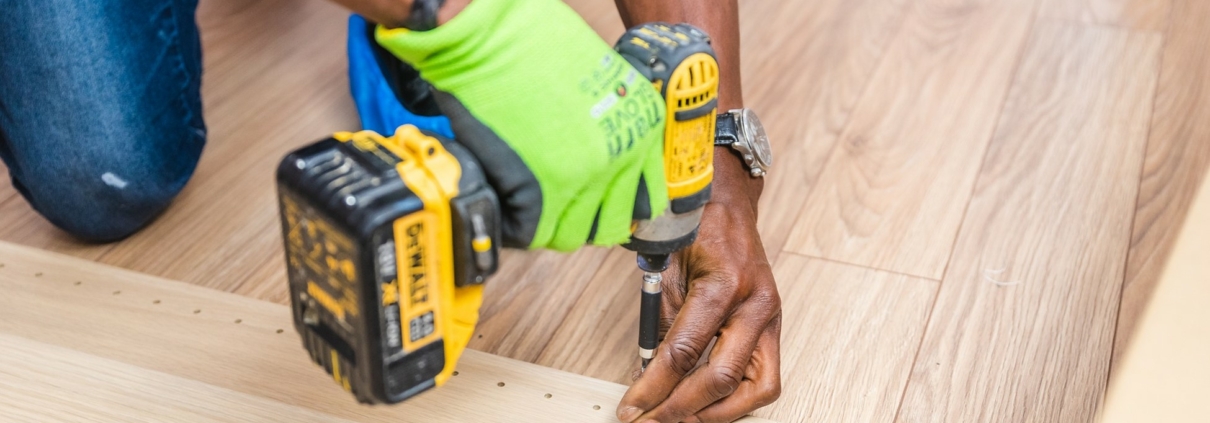Pro Tip: Don’t DIY These Home Repair Jobs
Doing home repair yourself can be a great way to trade sweat for equity. Some home repairs require little skill and few specialized tools, such as patching a small drywall hole or changing a kitchen faucet. YouTube is full of DIY videos that can make any repair seem simple, but a lot of home repair jobs can be either too complex or dangerous, or require tools that you don’t own. For these jobs, it’s best to call in professionals, including home inspectors and contractors.
Before you DIY, be honest with yourself
Forbes notes that DIY home repair projects can be a lot harder than they appear on TV shows and YouTube. When considering whether or not to start a project, ask yourself this question: Do you have the knowledge, time, and tools to do the job the right way? Poorly done repairs will haunt you in the future and could even decrease the value of your home. You may save a few dollars today by doing the work yourself. However, you might have to revisit the repair or hire a professional later. In this case, it’s better to get it done right the first time.
Before doing any DIY work, it’s always a good idea to get a home inspection done by professional, trusted inspectors. By getting an inspection, you’ll understand the ins and outs of the project you want to complete — before diving into something that’s way out of your league.
Jobs to avoid
Here is an incomplete list of tough jobs that you should probably hire a professional to complete.
- Crown molding. Everyone loves the high-end look of a fully trimmed-out room. And the job seems simple: cut up some trim, stick it to the walls—easy. But most homeowners who attempt this job quickly learn that even new homes don’t often have square corners. And although a coping saw is inexpensive, the skill needed to compensate for different corners takes years of practice.
- Flooring. For a small job, flooring can actually be a good DIY project (though again, getting an inspection before you begin is important). But if the project involves a large room or transitions from one type of flooring to another, hiring a professional is the best option to keep things aligned and smooth.
- Carpeting. Likewise, carpeting seems simple, until you try cutting a straight line with a carpet knife or start wrestling with a carpet stretcher. Definitely take the carpet store’s offer for professional installation and save a lot of anguish.
- Roofing. Other than being adept at using a chalk line, roofing doesn’t require a lot of technical skill. It is, however, one of the most hazardous jobs you can attempt. Stick to hiring professionals as they use the proper safety equipment and procedures.
- Mold abatement. When you smell or see the signs of mold and mildew, the safety of your family calls for a home inspection and professional mold assessment. Only attempt mold cleaning on small areas less than 10 square feet and in homes without young children, elderly, or anyone with compromised immune systems.
- Asbestos removal. The Spruce notes that if your house was built prior to 1979, then it’s possible that asbestos might be present in the bones of your home. Asbestos is common in popcorn ceilings. While it seems like removing it would be an easy job, handling asbestos is dangerous and is best removed by professionals with proper equipment after a thorough home inspection.
- Tree removal. If you notice a dead or nearly dead tree in your yard, it’s important to remove this before it becomes a serious problem. Instead of handling this yourself, which could result in physical harm to you and/or your home, hire tree removal professionals who have the know-how to do this task correctly and safely.
If you’re unsure which aspects of your home could use a little TLC, then you should reach out to the pros at Dooley Inspections to schedule an appointment. A home inspection can give you a much better idea of what needs to be done.
What you can do to help complete major repairs
In these instances where a professional is required, you can still have a hand in the process, and you might even be able to save money. Think about the job. Are there any ways you can make it easier for the professional, such as moving furniture out of the room if they are working on the floors or emptying cabinets for a kitchen remodel. Offer to help with cleanup, making a few landfill runs as your contribution. Also discuss material costs and sourcing with your professional. A professional contractor may be happy to not have to run to the store.
Identifying the jobs you can and cannot DIY will help you save money and ensure that your house is structurally sound. Invest in the skill and experience of home inspectors and professionals for difficult jobs that go beyond your expertise.
Photo Credit: Pixabay





Leave a Reply
Want to join the discussion?Feel free to contribute!